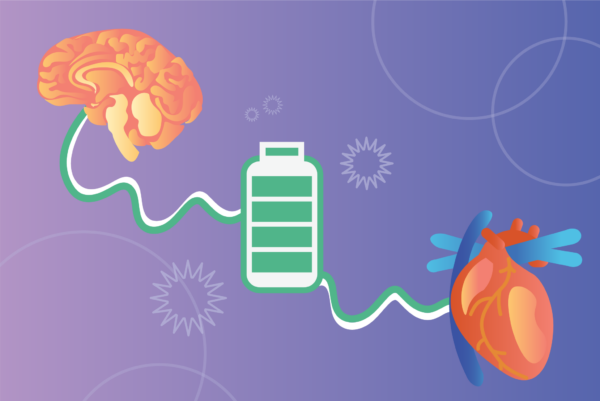Want better results at work? Wish your team was more impactful? You may want to lay off the aggressive goal setting and focus on increasing your emotional intelligence because EQ and high performance go hand in hand.
“Emotional intelligence may help someone improve their organizational performance because it helps them use their mental capacity to stay organized, do their job efficiently, and direct a team without being influenced by their emotional interactions,” says performance psychology expert Haley Perlus, Ph.D.
According to her, being emotionally intelligent entails being self-aware and able to choose how you react to emotional situations. And each of these abilities is key for developing strong performance.
“If one is missing, it may be hard for a professional to cope with their emotions at work, leading to lower levels of overall employee performance, financial performance, or product market performance,” she says.
Why leaders often sacrifice EQ while aiming for performance
But here’s the kicker: It’s super easy to throw emotional intelligence out the window when focusing on increasing performance, especially when you’re in a leadership role.
“Professionals inadvertently sacrifice emotional intelligence when focusing on increasing performance because once individuals climb the corporate ladder and reach titles such as CEO or senior executive, they spend less time on meaningful interactions with staff and tend to lose sight of how their emotional state impacts those around them,” according to Perlus.
High-powered execs are, after all, under a tremendous amount of pressure to deliver, which can lead to blind spots as far as leading with emotional intelligence. And the same is true for anyone looking to increase their performance or the performance of others at work, as the pressure comes with the territory. So it’s important to not only avoid sacrificing EQ in the pursuit of results but also to prioritize it because it will help you achieve your desired outcomes.
Remember: Your emotions impact your behavior. And your behavior impacts the emotions of those around you. “That impact is fundamental to the performance of all employees,” adds Perlus.
How to boost performance without sacrificing emotional intelligence
So whether you’re looking to boost your own performance or get your team to perform, the idea is the same: Focus on developing your EQ and letting it inform your actions, especially during more challenging times and especially if you have aggressive KPIs to meet. Here are some tips to do so.
1. Acknowledge others’ feelings
To supercharge performance without sacrificing emotional intelligence, remember to acknowledge others’ feelings. Even if you are tempted to move forward faster.
“Instead of ignoring or gaslighting your employees’ feelings so that they don’t interfere with action, acknowledge their feelings to validate their emotions and help them feel understood so they can move forward without hindrance,” says Perlus.
Ignoring others’ emotions in an effort to move forward will leave them with “lingering emotions that will inhibit performance.”
2. Show your appreciation often
It may sound counterintuitive when you are trying to get more results and your current situation is far from your desired target, but showing your appreciation often is key for boosting performance without sacrificing EQ.
Let your teammates or reports know when they are doing well. Compliment intentional efforts even if you haven’t reached your goal yet. “This will build loyalty and inspire employees to work harder,” says Perlus.
3. Manage your emotions before they get out of control
You also want to stay on top of your own emotional state. “Being aware of your emotions and managing them is very important for CEOs or high-level managers,” says Perlus.
“A leader’s negative emotions and behaviors will trigger negative emotions in others, which will cause unproductive effects. Learn how to effectively perceive, manage, and regulate your emotions to create a safe, encouraging and productive environment for your team.”
4. Lead by example during moments of stress
You also want to lead by example and show you can prioritize performance while remaining emotionally intelligent when you are performing your own tasks. It’s about the way you carry yourself when you think nobody is watching.
“Never forget to set an example. You are the ultimate representation of your company. Do not make the mistake of saying, ‘Do as I say, not as I do.’ A CEO or manager who leads by example motivates others to do their best work and be resilient during tough times,” adds Perlus.
5. Stay consistent with your efforts
Finally, consistency is key when you’re aiming to supercharge performance in an emotionally intelligent way. You may start prioritizing the importance of emotional intelligence and not see instant results. But small shifts add up over time, so don’t get discouraged and keep showing up.
“When you’re aiming to increase performance in an emotionally intelligent way, remember to take time to celebrate the positive, practice observing how you feel, pay attention to how you behave, take responsibility for your feelings, and understand that emotional intelligence requires continual development and improvement.”




